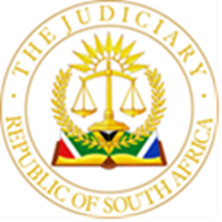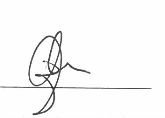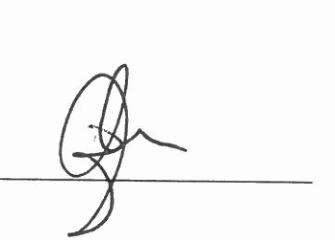8

IN THE HIGH COURT OF SOUTH AFRICA
GAUTENG DIVISION, PRETORIA
Case No: 11897/22
REPORTABLE: NO OF INTEREST TO OTHERS JUDGES: NO REVISED SIGNATURE DATE 
 07 MARCH 2023
07 MARCH 2023
In the matter between:
NONXUBA: NOVELWANO ALICIA APPLICANT
and
THE SOUTH AFRICAN LEGAL FIRST RESPONDENT
PRACTICE COUNCIL
THE LEGAL PRACTICE COUNCIL: SECOND RESPONDENT
GAUTENG PROVINCIAL OFFICE
JUDGMENT IN THE APPLICATION FOR LEAVE TO APPEAL
NDLOKOVANE AJ
INTRODUCTION
[1.] This is an application for leave to appeal by Applicant to the Supreme Court Appeal against the whole judgment and cost order that I delivered on 6 October 2022 in which judgment the Applicant's application for the review and set aside of the Respondents decision to refuse issuance of a Fidelity Fund Certificate in her own newly established firm, N A Nonxuba Attorneys was dismissed with costs.
[2.] The application for leave to appeal is sought in terms of the provisions of Section 16(1)(a)(i) read with Section 17(1)(a)(i) and (ii) of the Superior Courts Act, 2013(‘the Act”).
[3.] The application for leave to appeal is opposed by the first and second respondents (‘the respondents’).
[4.] For the sake of convenience, I will refer to the parties as they are cited in the main judgment. After delivery of the judgment on the 6th October 2022, the applicant filed a detailed notice of application for leave to appeal dated 17 October 2022.In support of the application for leave to appeal, the respondent relies on a number of grounds and these can be summarised as follow:
“4.1 The court failed to appreciate that the Applicant's previous directorship in
Nonxuba Inc. was in fact irrelevant for the purposes of her review application.
4 .2 The court inexplicably, in arriving at its conclusion, ignored the fact and/or failed to appreciate the significance of the fact that the Applicant had resigned from Nonxuba Inc. in September 2021.
4.3 The court failed to appreciate that the Applicant had applied for a Fidelity Fund Certificate, not as a director of Nonxuba Inc. but as the sole practitioner in her own newly established firm, N A Nonxuba Attorneys.
4.4 The court also failed to have sufficient regard to the fact that the Second Respondent was fully appraised of the fact that the Applicant was no longer employed at Nonxuba Inc. and that they, in fact, had assisted her in setting up her new firm.
4.5 The learned judge erred in finding that the case (with reference to the Western Cape litigation) against the Applicant and her husband was serious, in circumstances where the only reason why the Applicant was joined to her husband's application was to regulate procedural issues and not because there was any case against her or any case for her to answer.
4.6 The order of Le Roux AJ contains only an undertaking by the Applicant, as an employee of Nonxuba Inc., not to take steps to enforce any judgment or orders granted in execution proceedings.
4.7 The Applicant was not joined to the Conditional Application. In terms of the Le Roux AJ order, her husband and "any other person authorised to operate the trust accounts" was prohibited from operating on the trust account. As an attorney in the employ of Nonxuba Inc. the Applicant was thus prohibited from operating on the trust account.
4.8 The Le Roux AJ order is premised on the fact that the Applicant was employed at Nonxuba Inc., which she was at the relevant time.
4.9 The court failed to appreciate that upon the Applicant's resignation from Nonxuba Inc, the Le Roux AJ order became redundant in relation to herself.
4.10 The court failed to appreciate that the Western Cape litigation against her husband was in fact irrelevant for the purposes of her application.
4.11 The court erred in finding that the Le Roux AJ order "has the effect of a suspension.
4.12 The court erred in not finding that the Applicant satisfied the requirements for a Fidelity Fund Certificate to be issued to her. More specifically, the court erred in not finding that the Applicant applied for a certificate to be issued to her as a sole practitioner of her own legal practice and such application for a certificate had nothing to do with Nonxuba Inc.
4.13 The court erred in not finding that there are no objective facts which support the contention that the Applicant has not complied with Chapter 7 of the Legal Practice Act, 2014 ("the LPA") other than the Respondents ‘subjective "concern" regarding her previously employer's trust account.
4.14 The court erred in not finding that the decision of the Second Respondent in refusing to issue the Applicant with a Certificate was constitutionally unlawful, unreasonable, irrational and influenced by an error of law and fact.
4.15 The court erred in not finding that the decision of Van Staden was based on a consideration of irrelevant and immaterial information.
4.16 The court erred in not finding that the decision of Van Staden constituted an unreasonable exercise of a power and/or function.
4.17 The court erred in not finding that there is no evidence to support a decision that the Applicant did not comply with chapter 7 of the LPA. The court erred in finding that the judgment of the Supreme Court of Appeal in Law Society of the Northern Provinces v Vijloen (094/2010); Law Society of the Northern Provinces v Dykes (648/2010) (2010) ZASCA 176 (02 December 2010) ("the Vijloen judgment") was not applicable and reliance thereon was misconceived.
4.18 The court, with respect, confused and conflated the requirements for the issuing of a Fidelity Fund Certificate with the requirements for being a fit and proper person to act as an attorney. The court erred in assessing the fitness and properness of the Applicant to act as an attorney and failed to properly consider whether she had complied with the requirements for a Fidelity Fund Certificate.(my own emphasis)”
The test in an application for leave to appeal.
[5.] Applications for leave to appeal are governed by ss 16 and 17 of the Act. Section 17 makes provision for leave to appeal to be granted where the presiding judge is of the opinion that either the appeal would have a reasonable prospect of success or there is some other compelling reason why the appeal should be heard, including whether there are conflicting judgments on the matter under consideration.
[6.] Reasonable prospects of success has previously been defined to mean that there is a reasonable possibility that another court may come to a different decision.
[7.] With the enactment of s17 of the Act, the test has now obtained statutory force and is to be applied using the word ‘would’ in deciding whether to grant leave. In other words, the test is would another court come to a different decision. In the unreported decision of the Mont Chevaux Trust v Goosen & 18 others1, the Land Claims Court held, albeit obiter, that the wording of the subsection raised the bar for the test that now has to be applied to any application for leave to appeal.
[8.] In the present matter, I would have to determine whether another court would (my emphasis) come to a different decision. I have considered the application for leave to appeal and the oral submissions of the parties.
[9.] A proper consideration of the applicants’ heads of arguments and oral submissions made during the course of argument ,
the applicants’ counsel, as would be expected, submitted that I erred by assessing the fitness and properness of the Applicant to act as an attorney and failed to properly consider whether she had complied with the requirements for a Fidelity Fund Certificate.
[10.] In contrast, the respondent’s counsel submitted that in paragraph 18 of the respondent’s heads of arguments:
“The applicant’s liability for irregularities in the operations of the trust account of Nonxuba Inc,despite her feigning ignorance, is a point of law and has been established. The Applicant’s culpability is not different from that of her husband. Directors of a juristic entity through which a legal practice is conducted, cannot contract themselves out of their legal obligations. The Applicant’s convoluted explanation of non-directorship that remains directorship, is the evidence of the transgression”.
[11.] Turning to the legal prescripts applicable in the present case and also referred to in paragraph 7 of the main judgement, Rule 54.29 of the LPC Rules in particular provides that:
“ in order to qualify for the issue of a fidelity fund certificate, a trust account practitioner must ensure that an unqualified audit or inspector's report is issued in respect of any firm or firms of which he is or was a partner or director or sole practitioner during the financial period under review and is delivered timeously to the Council”.
[12.] It is not denied that the Applicant being an admitted attorney of this Court, commenced practicing as an attorney in her husband's (ZMM Nonxuba) law firm, Nonxuba Inc. in the beginning of 2018. as a salaried Director and employee of Nonxuba Inc. Due to the ongoing litigation against her husband and his firm, and her concern of the impact thereof on her as an attorney, the Applicant resigned from Nonxuba Inc. in September 2021.
[13.] In October 2021, she established her own practice, NA Nonxuba Attorneys. She also opened her own trust account. For the first time, as an attorney, the Applicant now operates, controls and is responsible for her own trust account. The Applicant applied for a Fidelity Fund Certificate for the year 2022. This was done on the on-line application platform. She successfully completed all the required parameters of the on-line application form. With regard to the submission of the audit certificate pertaining to her trust account, she advised that this is for the future as she had only commenced practice in October 2021 and her trust account was still to be audited.
On 8 February 2022, she was verbally advised that the Second Respondent had an issue with the audit of Nonxuba Inc, where she used to hold a position of the Director.
[14.] This was followed by the decision of the first and/or second respondents made on or about 14 February 2022, in terms of which the applicant's application for a Fidelity Fund Certificate was refused. The letter that constitutes the “decision” in refusing the applicant the certificate. It becomes important to re-iterate the relevant extracts from the said letter as it sets out the respondents’ reasons for their decision:
“Your client was admitted as an attorney on 6 February 2018, as has been detailed in her letter, practised as a director of Nonxuba Incorporated where she was required to be in possession of a Fidelity Fund Certificate in terms of Section 84 (1) of the LPA. She is as such not for the first time required to have a Fidelity Fund Certificate. The provisions of Section 47.7.2 are thus applicable to application for the Fidelity Fund Certificate.
The South African Legal Practice Council (“the LPC”) has noted concerns with the management of the trust account of Nonxuba incorporated which concerns are subject to ongoing litigation under WCHC Case Nr. 10313-21 (to which Mrs Nonxuba is a party). As has been outlined by the LPC in its papers, this litigation is subject to a confidentiality provision. As such the LPC is unable to raise its concerns relating to the audit certificate issued to Nonxuba Inc. for the year 2021 with either the auditor responsible or Independent Regulatory Body for Auditors.
The LPC will be unable to accept the 2021 audit certificate for Nonxuba Inc, until its litigation is finalised.
As such your client fails to meet the requirements for a Fidelity Fund Certificate to be issued in her name...”
The letter then continues:
“According to our records your client was a director of Nonxuba Incorporated effective from 7 February 2018
As outlined above, Nonxuba Inc administered its trust account in accordance with the LPA and the Rules to subject to ongoing litigation under WCHC case number 10313/2021.
As such and until the aforementioned litigation is finalised and the LPC has satisfied itself that the relevant regulatory provisions have been complied with, the LPC does not regard your client as having complied with Chapter 7 of the LPA.”
[19.] Having considered the arguments presented by the both parties in the leave to appeal, the authorities applicable in this regard, the reasons furnished in the main judgement against those reasons furnished by the respondents for the refusal, I am not satisfied that reasonable prospects of a successful appeal exist. In fact, I am of the view that there is no reasonable prospect that another court would differ with me.
ORDER
[20.] In the result the following order is made:
1. Leave to appeal is refused.
2. The applicant is to pay the costs of the application for leave to appeal.

N NDLOKOVANE AJ
ACTING JUDGE OF THE HIGH COURT
GAUTENG DIVISION, PRETORIA
Delivered: this judgment was prepared and authored by the judge whose name is reflected and is handed down electronically and by circulation to the parties/their legal representatives by email and by uploading it to the electronic file of this matter on Caselines. The date for handing down is deemed to be 07 March 2023.
APPEARANCES:
FOR THE APPLICANT: ADV. C. MCKELVEY
FOR THE FIRST AND SECOND RESPONDENTS: ADV C TSHAVHUNGWA
HEARD ON: 25 NOVEMBER 2022
DATE OF JUDGMENT: 07 MARCH 2023
1 2014 JDR 2325
